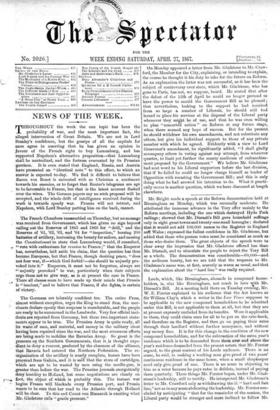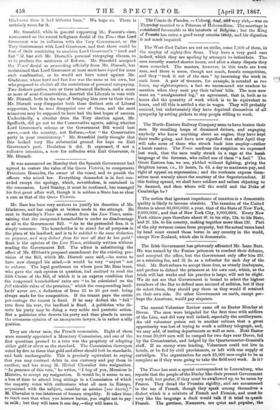Leeds, which, like Birmingham, abounds in compound house- • holders,
is, also like Birmingham, not much in love wjth Mr. Disraeli's Bill. At a meeting held there on Tuesday evemng, Mr. W. E. Forster explained to his audience that the Act known as Sir William Clay's, which a writer in the Law Times supposes to be applicable to the new compound householders to be admitted under this Bill, is not applicable to them at all, but that they are at present expressly excluded from its benefits. Were it applicable to them, they could claim once for all to be put on the rate-book, and therefore on the Register, and then go on paying their rates through their landlord without further annoyance, and without any money fine. It is for this change in the condition of the new compound householders, and for the subtraction of the extra year's residence which is to be demanded from them over and above the- year's residence demanded from the present voters, that Mr. Forster argued, to the great content of his Leeds audience. There is no sense, he said, in making a working man give proof of two years' continuous residence in the same house, when a small shopkeeper need only give proof of one. There is no sense in objecting to him as a voter because he pays rates in driblets, instead of paying them quarterly. These things Mr. Forster hopes, under Mr. Glad- stone's leadership, still to rectify. He interpreted Mr. Gladstone's letter to Mr. Crawford only as withdrawing the 5/. "hard and fast line," not as in any sense abdicating the leadership. Mr. Forster con- cluded by anticipating "that for the remainder of the session, the Liberal party would be stronger and more inclined to follow Ms. Gladitone than it had hitherto been." We hope so. There is certainly room for it.































